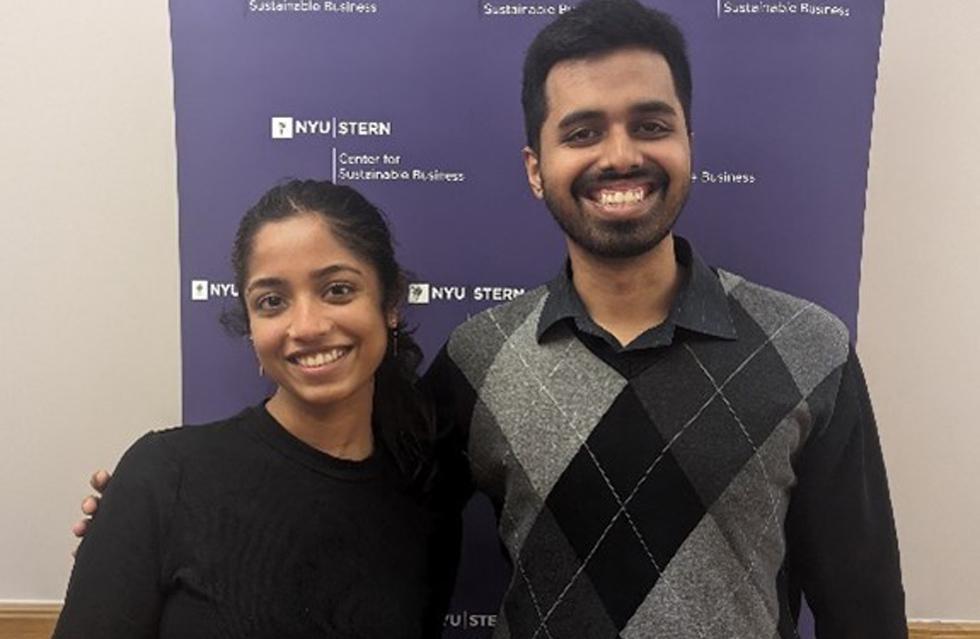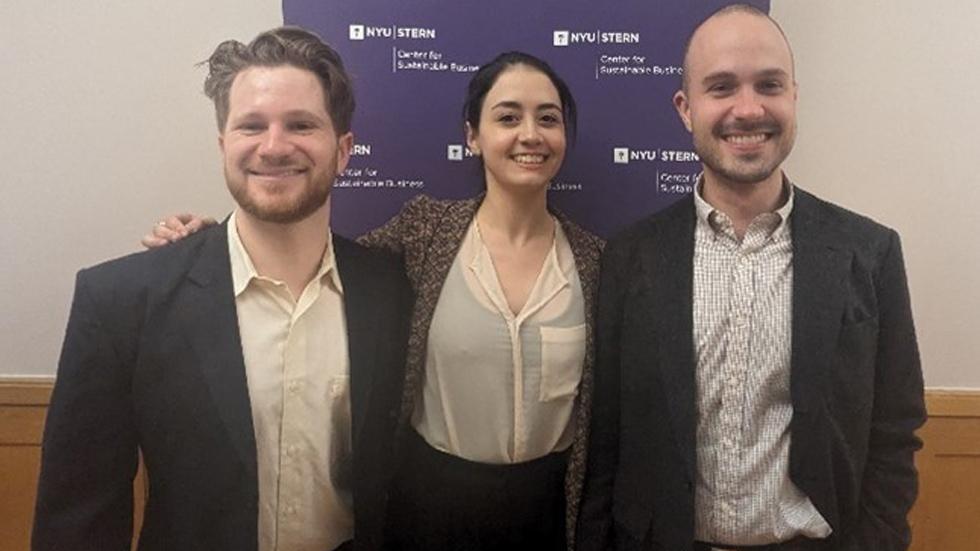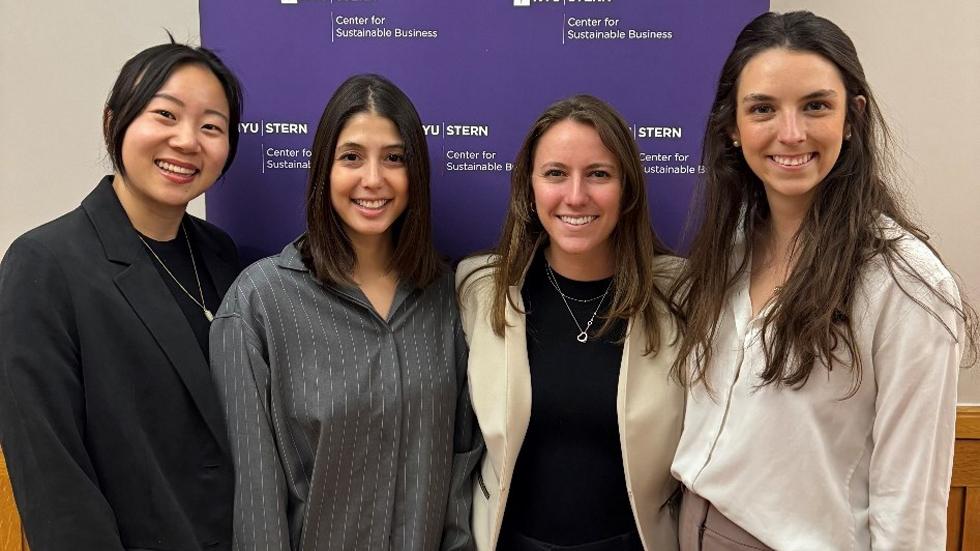
On April 25, the NYU Stern Center for Sustainable Business (CSB) hosted a Business Pitch Competition for MBA students. The entrants were tasked with leveraging the school’s Return on Sustainability Investment (ROSI) methodology to build a model for commercial real estate (CRE) leaders to assess the financial benefits, both tangible and intangible, of decarbonization strategies. The competition was sponsored by Empire State Realty Trust (NYSE: ESRT), which provided the students guidance on the key challenges facing real estate owners in creating the business case for making sustainable investments in buildings.
Jessica Long, Nareit’s SVP of environmental stewardship & sustainability, joined a panel of expert judges that included:
- Christina Chiu, president, Empire State Realty Trust;
- Elyse Douglas, senior scholar, NYU Stern Center for Sustainable Business;
- Adam Fisher, VP, North America ESG Advisory Practice Co-Lead, JLL;
- Dana Robins Schneider, SVP, director of energy, sustainability, and ESG, Empire State Realty Trust;
- Eddie Stern, founder and president, Hartz Capital; and
- Tensie Whelan, Distinguished Professor of Practice, NYU Stern School of Business; founding director, Center for Sustainable Business.
Five teams of students each had 10 minutes to present to the judges, who scored based on the team’s articulating the ROSI value drivers for each strategy and various CRE value chain partners, providing clear monetization methods, and including creative and innovative strategies. The presentations focused on calculating returns based on intangible benefits of sustainability initiatives, such as tenant satisfaction and worker productivity, reputation, and engagement with supply chain to improve the environmental impact of building materials.
“With the built environment responsible for as much as two-thirds of greenhouse gas emissions in cities like New York, the real estate sector needs support, particularly with understanding how decarbonization can drive better financial performance,” said Tensie Whelan. “Not only value created through operational efficiencies, such as energy savings, but also through benefits such as improved tenant productivity, green premiums, [and] reduced labor costs.”
Whelan also noted that NYU Stern students learned a great deal through the competition process—not only about decarbonizing real estate, “but also about identifying the intangible and tangible financial benefits of sustainability practices—something not well-tracked today.”
The winning team, Plot Twisters, impressed the judges with their presentation of both quick wins and “moonshot” recommendations, which included projects with a longer timeline but larger impact. They also included an analysis of how real estate owners can capitalize on sustainability initiatives by communicating sustainability strategies, such as purchasing renewable energy credits, to stakeholders.

The second place team, Team WELLness, provided a thoughtful analysis of sustainability solutions such as mass timber, reuse of building materials and office equipment, and using rooftop solar canopies to maximize the potential of roof space for both amenity space and solar potential.

The third place team, Concreate Jun-Girls, highlighted how sustainability-linked loans can lower real estate owners' costs of capital and how buildings with improved indoor air quality can attract higher rent from tenants who are focused on employee productivity and wellness.
“We are pleased to be the first real estate company to partner with NYU’s ROSI team and to lead the development of coursework supported by a real case study to guide students to make the business case for investment in sustainability in the built environment beyond the measures for which we already have quantitative methodologies,” shared Schneider of ESRT.
“The value proposition for investment in sustainable and net zero carbon retrofits is far more than what we can currently include in our business cases,” Schneider added. “We need a way to quantify benefits such as modern, healthy, and more productive spaces, indoor environmental quality, and climate risk mitigation.”
The 2024 winners also reflected on their experience in a blog post.
“Participating in the Sustainable Business Pitch Competition was easily one of our favorite experiences at Stern so far,” winners Mohan and Sayeesundar wrote. “Knowing that all the time and effort we put into this challenge will make our buildings greener gives us a true sense of pride that isn’t easy to replicate.”